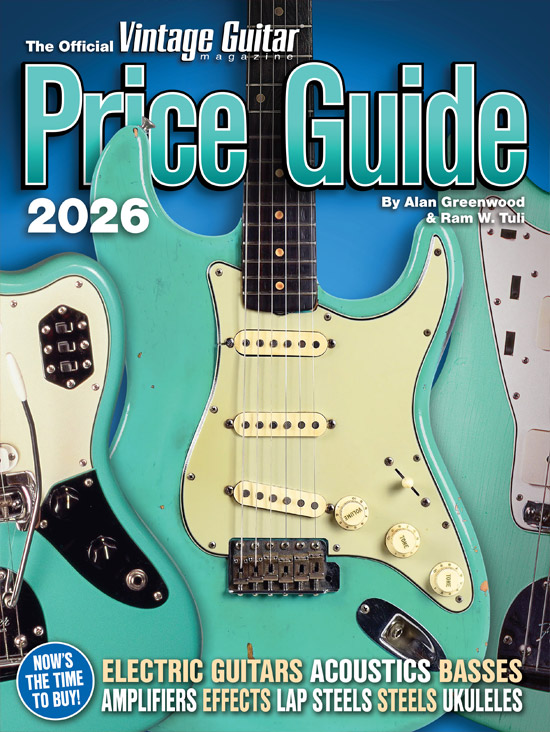
A longtime member of Sting’s band, Dominic Miller is the quintessential team player, even on his own solo albums. His latest release is Vagabond, a melding of jazz, world music, and pop produced by studio icon Manfred Eicher.
The enchanting music is led by Miller’s acoustic guitar, yet he never overplays. Rather, he lets other members of his ensemble shine while he drops fingerstyle chords and melodies. It’s quietly powerful music that can lay you out with just a few simple notes.
Were the guitarists you listened to growing up players who supported the song?
I’ve always been inspired by great accompanists like Lindsey Buckingham, The Edge, Andy Summers, and Malcolm Young. They are guitar heroes to me.
There are strong, spacious compositions throughout your new album, like “All Change.” How do you write?
Usually, I start with a simple motif or arpeggio. If I recognize it as something cool, I work on it. In this case, as with many others, it’s how two chords work together. After that, it’s like solving a puzzle and listening, then trusting where it can go. I seldom write to a beat or groove – I like leaving a lot of space by not stating the obvious, more to offer the listener a chance to fill in the spaces. I think this makes for a more-interactive experience where the listener and I are in a kind of a musical collaboration.
Do you write alone with your guitar, or do songs evolve through jamming with bandmates?
I write alone – very alone. Once the structures arrive at their conclusion, I jam on them with my band and that sometimes inspires me to adjust the chords and/or melody to suit the narrative. I don’t write the music out; I get the grown-ups to do that. If I did it, the sheet music would be laden with mistakes.
In videos with your bandmates, there’s a lot of visual communication among the players. Talk about the musical “conversations” you have while recording.
Yes, it is like a conversation. I like making eye contact while recording, which is sometimes amusing. After all, we’re having fun by “playing” music.
When you’re in the studio with Manfred Eicher, what is his specific role.
Manfred is like the fifth Beatle. His role is almost like a film director where he wants the actors in a particular kind of state, preferably not your comfort zone. This is when really interesting things happen. He’s a truly inspiring producer who gets a performance out of you that you could never achieve on your own.
Which guitars did you use?
I used a Yairi Torres model nylon-string, a Yairi steel-string Rag, and a Rodriguez classical. All of them incredible.
You live in France and recorded in the Provence town of Pernes-les-Fontaines. Did the atmosphere or slower pace of life in the Mediterranean region inspire Vagabond?
Possibly, yes, particularly with the use of space. Nature and climate are so powerful and have acted as a kind of co-collaborator on this album; the colors are inspiring, too, which kind of translates to harmony and contrast. I’m always interested in chords that clash and then try to make sense of them.
How do you amplify your acoustic on the road?
I just go direct into the desk with no effects except some reverb front-of-house. I think it’s a mistake to use compression on an acoustic because then you can’t really control the dynamics. I like to keep the sound as pure and raw as possible.
Some players and bands have trouble finding discipline to put spaces and holes in their music, but you seem to excel in that area. Can you offer guitarists any advice on cultivating “not playing,” versus filling up every space with sound?
This has actually taken me years to understand (laughs). I equate it to having a conversation with someone where sometimes it’s quite powerful to say nothing and reflect on what’s just been said. In those quiet moments, the truth or answer is often found. It’s so tempting to keep “talking,” but I’m learning how to shut the f**k up when it’s being called for. I’m still working on it.
You’ve worked with Sting for years. What’s one lesson you learned from him?
One thing I’ve learned is if you surround yourself with great musicians, you end up looking great.
You also recently met your personal guitar hero, John McLaughlin.
I’m still pinching myself. I’ve met him a few times, actually, but this time we got a chance to really talk, and I must say he is the coolest and nicest guy ever.
This article originally appeared in VG’s August 2023 issue. All copyrights are by the author and Vintage Guitar magazine. Unauthorized replication or use is strictly prohibited.



